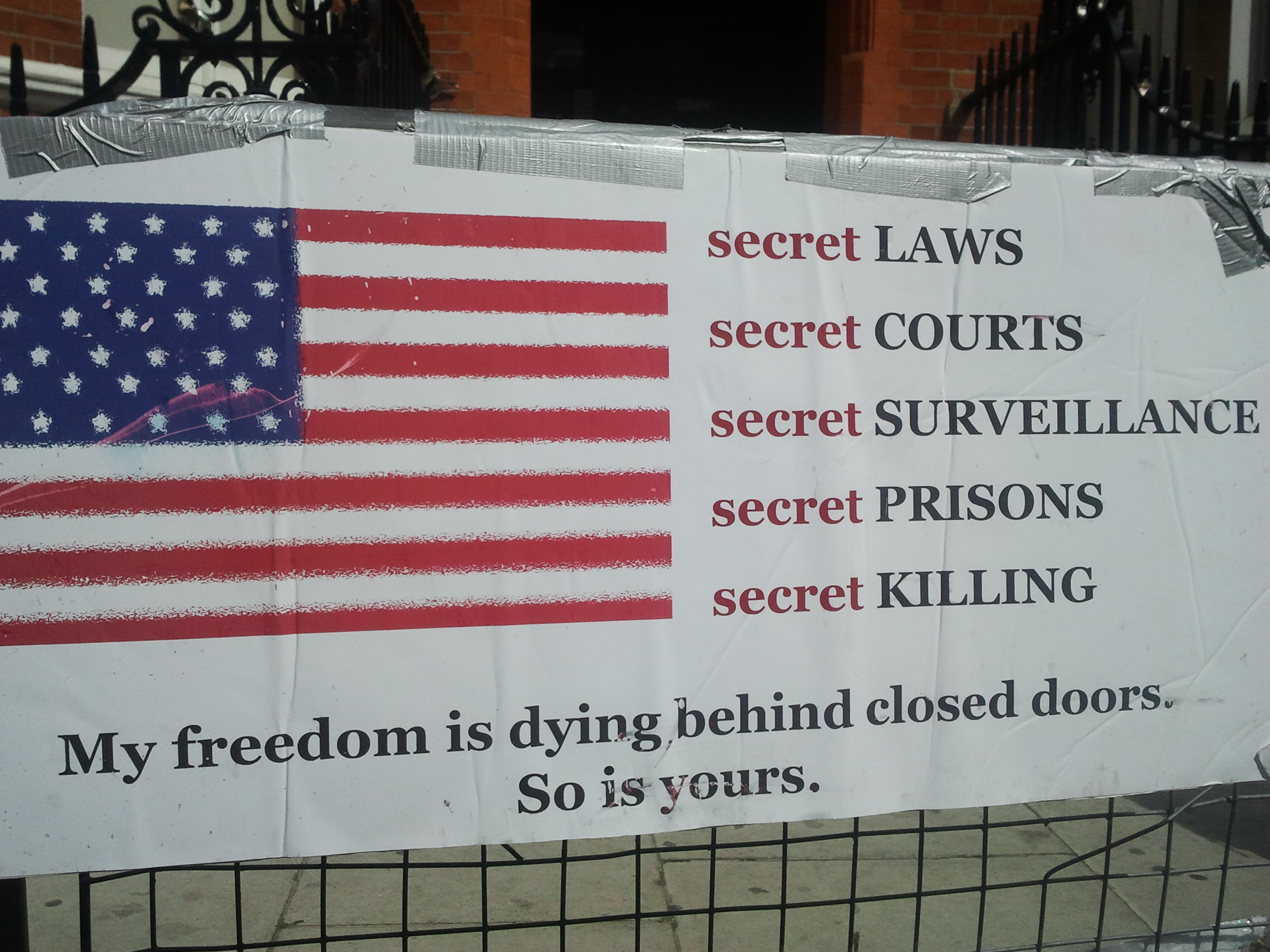Supporters of Julian Assange will march in London tomorrow (Saturday) to protest against his possible extradition to the United States.
The Wikileaks founder’s is extradition hearing begins on Monday (February 24) at London’s Woolwich Crown Court. Assange is facing 17 charges of espionage in the US that carry prison sentences of 175 years.
The march will begin at Australia House (at the junction of the Strand and Aldwych) at 12.30pm and proceed to Parliament Square.
Pink Floyd co-founder Roger Waters will perform with other high-profile marchers including Yanis Varoufakis, Vivienne Westwood, MIA, Brian Eno and Chrissie Hynde in attendance.
‘Blinded by propaganda’
A joint statement from 1,200 journalists in 98 countries in support of Assange was released yesterday (Thursday), and states: “If governments can use espionage laws against journalists and publishers, they are deprived of their most important and traditional defense – of acting in the public interest – which does not apply under the Espionage Act.”
The statement quotes the United Nations Special Rapporteur on Torture, Nils Melzer, who investigated Assange’s case and said: “It finally dawned on me that I had been blinded by propaganda, and that Assange had been systematically slandered to divert attention from the crimes he exposed.
“Once he had been dehumanized through isolation, ridicule and shame, just like the witches we used to burn at the stake, it was easy to deprive him of his most fundamental rights without provoking public outrage worldwide.
“And thus, a legal precedent is being set, through the backdoor of our own complacency, which in the future can and will be applied just as well to disclosures by The Guardian, the New York Times and ABC News.”
‘The Dreyfus case of our age’
Labour’s John McDonnell has called the US attempt to extradite Assange as “the Dreyfus case of our age”, following a visit to Assange in Belmarsh prison on Thursday; making reference to the 1894 arrest, trial, conviction and eventual exoneration in 1906 of a Jewish French army officer accused of treason.
“I think this is one of the most important and significant political trials of this generation,” the shadow chancellor said about the Assange case. “In fact, longer. I think it is the Dreyfus case of our age, the way in which a person is being persecuted for political reasons for simply exposing the truth of what went on in relation to recent wars.”
McDonnell remarks sparked outrage from Jewish leaders. The chief executive of the Holocaust Educational Trust Karen Pollock called the comparison “inappropriate…outrageous, ridiculous and deeply offensive”, while the Antisemitism Policy Trust called the comments “crass and offensive”, adding McDonnell “should know better.”
In a statement to Jewish News, McDonnell replied: “It was quite clear what I meant.”
He added: “Just like the Dreyfus case, the legal action against Julian Assange is a major political trial in which the establishment is out to victimise an innocent. On that basis, of course it’s right to assert that it’s a parallel.”
‘Trump floated pardon for Assange’
A lawyer for Assange has claimed US President Donald Trump “floated a pardon” for Assange if he would deny Russian involvement in the “dump” by Wikileaks of Democratic party documents and emails.
“It is a complete fabrication and a total lie,” said the White House press secretary about the alleged pardon which was revealed in court hearings by Edward Fitzgerald QC, acting for Assange.
“Lawyer’s don’t usually make claims in court they can’t prove”, wrote former US attorney Joyce White on Twitter.




